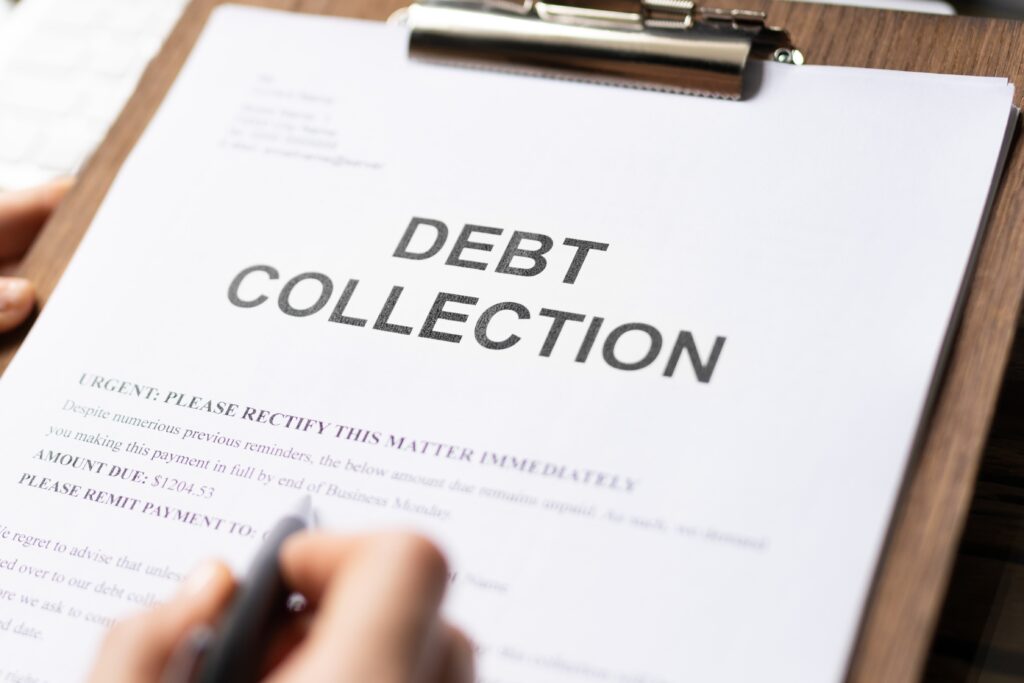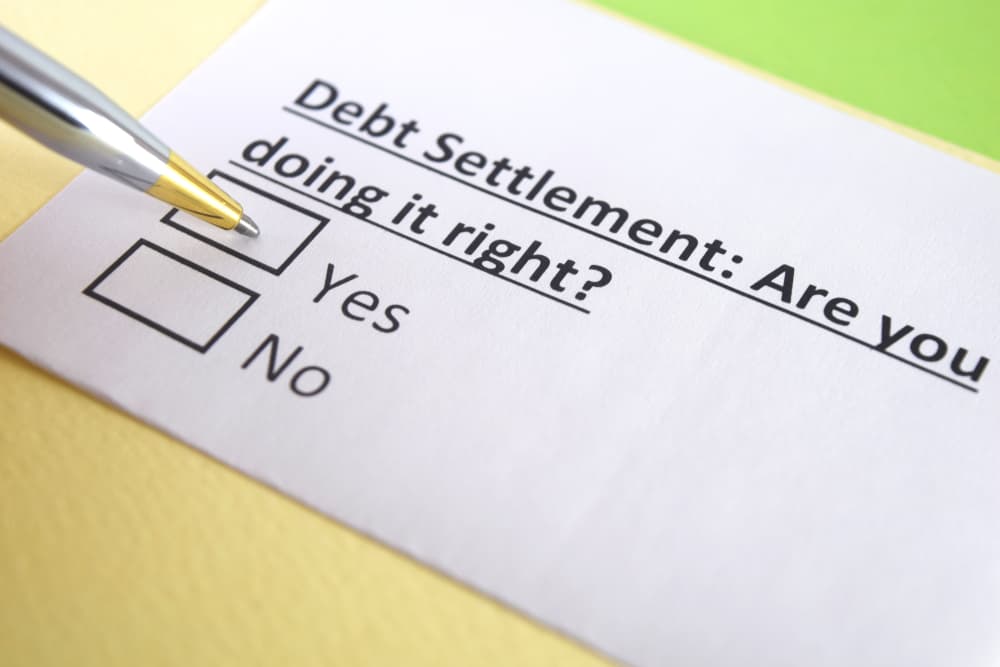Receiving a collection demand letter can be a stressful and confusing experience. These letters are a serious matter, signifying that a creditor or collection agency is taking steps to recover debts you may owe.
In this guide, we'll break down what you need to know about collection demand letters, the legal implications they carry, and how you should respond to protect your interests.
If you're feeling overwhelmed by a demand letter or the prospect of debt collection, consulting with an experienced debt defense attorney can provide clarity and guidance.
What Are Collection Demand Letters?
Collection demand letters are formal notices sent to individuals who have outstanding debts. These letters are typically issued by creditors or debt collectors and serve as an official request for payment. The purpose of these letters is to inform you of the debt and to urge prompt payment.
Creditors are the original lenders or service providers who are claiming that you owe them money. Collection agencies are third-party companies hired by creditors to pursue outstanding debts.
Collection demand letters often mark the transition of debt handling from the original creditor to a collection agency.
These agencies follow specific procedures and legal guidelines in their debt collection efforts. Understanding the dynamics between these entities and their roles can provide clarity on how to approach and respond to these letters.
What Are the Legal Requirements for Demand Letters?

Collection demand letters are not just simple notices; they are governed by specific legal requirements, particularly under the Fair Debt Collection Practices Act (FDCPA).
This federal law sets standards to prevent abusive practices in the collection of consumer debts and imposes several obligations on debt collectors.
Key Legal Standards under the FDCPA
- Accuracy: Debt collectors must accurately state the amount owed.
- Identification: The letter must clearly identify the collector and the creditor.
- Debtor's Rights: It should inform the debtor of their rights, including the right to dispute the debt within 30 days.
- Validation of Debt: If disputed, collectors must provide validation of the debt.
How to Decode a Collection Demand Letter
Let’s break down some common elements found in debt collection demand letters and what they imply.
Information About the Debt
The letter should itemize the debt, clearly breaking down the principal amount, interest, late fees, and any other charges.
This breakdown helps you understand exactly what you're being asked to pay and why. You will need to compare the information in the debt demand letter with your records to ensure accuracy.
Additionally, the demand letter must identify who is claiming the debt (the original creditor) and who is handling the collection process (the debt collector).
This information is important because you need to know whom you’re dealing with, and it may affect how you choose to respond.
Payment Instructions and Options
Look for detailed payment instructions in the letter. These should include where and how to send your payment, what forms of payment are accepted, and any deadlines.
This section might also include information about payment plans or settlement options, offering an opportunity for negotiating your debt.
Knowing and Exercising Your Debt Collection Rights
The most critical part of the demand letter is where it outlines your rights. This includes your right to dispute the debt and instructions on how to dispute the debt.
The letter must inform you that you have 30 days to dispute the debt, and if you do, the collector is obligated to provide proof of the debt.
What Are the Consequences of Non-Response or Non-Payment?
A collection demand letter might outline the potential consequences of not responding or not paying the debt. This can include additional fees, increased interest rates, and the possibility of legal action.
However, the letter must stay within legal boundaries and cannot threaten actions that are not permitted under collection laws.
If you feel overwhelmed or unsure about how to proceed after receiving a collection demand letter, it is beneficial to consult with a debt collection defense attorney who can guide you through the process.
Knowing how to evaluate your situation will help you prepare an appropriate response. While a debt demand letter outlines what the collector expects, it also serves as a starting point for any potential negotiations or disputes.
What Are Some of Your Legal Rights and Protections for Debt Collections?
Your rights under the Fair Debt Collection Practices Act are in place to shield you from unfair or aggressive debt-collection tactics.
Key Rights Under the FDCPA
- The Right to Dispute the Debt. You can dispute the debt within 30 days, and the collector must pause collection efforts until they verify the debt.
- Harassment Protection. You are protected against harassment, oppression, or abuse from debt collectors.
- No Deceptive Practices. Collectors are prohibited from using deceitful methods to collect debts.
The Impact of Your Rights on Collection Practices
Federal protections ensure that debt collectors follow ethical guidelines in their interactions with you.
Unethical or illegal debt collection practices are violations of your debtor rights and are grounds for a lawsuit against a debt collector.
3 Steps to Take if Your Debt Collection Rights Are Violated
- Document Everything. Keep records of all interactions with collectors.
- File Complaints. You can report violations to the Consumer Financial Protection Bureau or your state attorney general.
- Seek Legal Advice. For guidance or to pursue legal action against violations, consulting a debt defense lawyer can be beneficial and sometimes necessary.
Each step should be handled carefully, as your response can impact your credit score and legal standing. Make sure to keep a record of all communications for future reference.
What Happens if You Ignore a Collection Demand Letter?
Ignoring a collection demand letter can have serious consequences for consumers. The following are examples of what can happen if you choose not to respond.
- Escalation of Debt Collection Efforts. Ignoring the letter often leads to intensified collection efforts. Collectors might increase the frequency of their communication or employ more assertive tactics.
- Negative Credit Score Impact. Unresolved debts reflected in your credit report can significantly damage your credit score. This can affect your ability to obtain loans, and credit cards, and even influence housing, insurance, and employment opportunities.
- Legal Action and Judgments. If the debt is substantial, the collection agency may decide to take legal action. If a court judgment is made against you, it could lead to wage garnishment, asset seizure, or liens on your property.
- Increased Financial Burden. Additional fees and interest accumulate on the unpaid debt, increasing the total amount owed over time.
Addressing a demand letter promptly can prevent these outcomes. It allows you to control the situation more effectively, whether by disputing the debt, negotiating a settlement, or arranging a payment plan.
What Are Some Strategies for Negotiating and Settling Debts?

If you’re considering negotiating your debt on your own, some of the strategies below can help you.
- Understand Your Financial Position. Assess your finances to determine how much you can realistically afford to pay.
- Communicate Clearly with Creditors. Initiate a dialogue with the creditor or collection agency to discuss your situation. Be honest about your financial constraints.
- Settlement Offers. Consider offering a lump sum that is less than the total amount owed. Creditors might accept a lower amount for a quicker resolution.
- Payment Plans. If a lump sum payment isn’t feasible, propose a payment plan that allows you to pay off the debt over time.
- Get Agreements in Writing. Any settlement agreement or payment plan should be documented in writing to avoid future misunderstandings.
- Be Aware of the Statute of Limitations. if a debt is time-barred according to the statute of limitations in your state, a collector can still attempt to collect the debt. However, if they choose to file a lawsuit, they are unlikely to succeed due to the debt's age.
- Making a Payment Will Reset the Debt. It's extremely important to know that acknowledging the debt or making a payment can reset the statute of limitations. Make sure to confirm the debt's status before making any decisions or agreements.
What Are Ways to Prevent Debt Collection?
Preventing debt collection starts with effective financial management. Here are some tips:
- Budgeting. Create a budget to track and manage your expenses.
- Having an Emergency Fund. Build an emergency fund to cover unexpected expenses without resorting to credit.
- Timely Payments. Pay your bills on time to avoid falling into debt.
- Understanding Terms of Credit. Be aware of the terms and conditions of any credit you use, including interest rates and payment schedules.
- Seeking Financial Advice. If you’re struggling to manage your debt, consider consulting a financial advisor for guidance.
Frequently Asked Questions About Collection Demand Letters
What Should I Do First After Receiving a Collection Demand Letter?
Verify the accuracy of the debt and creditor details. Check if the amount matches your records and confirm the legitimacy of the debt.
Can Collection Agencies Add Additional Fees to the Debt?
Agencies can add fees if allowed by the original credit agreement or state laws. Understand your rights and check state regulations regarding additional fees.
Is There a Time Limit for Responding to a Collection Demand Letter?
Generally, you have 30 days to dispute the debt from the date you receive the demand letter. Post this period, the debt is assumed valid by the collector.
How Can a Collection Demand Letter Affect My Credit Score?
Unpaid debts reflected in your credit report can negatively impact your credit score. Timely response to a demand letter can help protect your credit standing.
What Are My Options If I Cannot Afford to Pay the Full Amount?
Consider negotiating a settlement for less than the full amount or arrange a payment plan. Be upfront about your financial situation with the collector.
Contact a Debt Collection Defense Lawyer
When you’ve received a demand letter from a collection agency, hiring a skilled debt collection defense lawyer can make a significant difference in your case – not to mention reduce your stress levels as well.
Kazerouni Law Group is renowned for its experience in debt collection defense and consumer protection law.
Our success is not just in the number of people we help nationwide, but in the real impact we have on our clients’ lives.
A History of Successful Debt Collection Defense Outcomes
Kazerouni Law Group has established itself as a leader in the field of debt collection defense, by securing over $1 billion in verdicts, awards, and settlements.
This impressive figure is a testament to our deep understanding of debt law and our commitment to defending clients against aggressive collection practices.
Our approach combines a thorough knowledge of legal regulations with a strategic understanding of creditors' tactics, making us a formidable advocate for any client facing debt collection challenges.
Our Client-Centered Approach to Debt Defense
What sets our law firm apart is our client-centered approach. Understanding that each case is unique, we offer personalized legal strategies designed to meet the specific needs and goals of each client.
We offer free consultations because our clients are not just another case number. We want to know how being subjected to debt collection has affected you and your family. Our clients receive the focused attention and customized defense strategy they deserve.
We Have the Resources to See Your Debt Collection Case to the End

From negotiating settlements to contesting unjust practices in court, Kazerouni Law Group can handle consumer debt collection cases across the United States.
Whether you’ve been a victim of identity theft, disputing the amount owed, or defending against harassment and illegal collection tactics, our seasoned consumer protection lawyers can represent you in state or federal courts and level the playing field against big collection agencies.
Find out how we can help you today by contacting a consumer debt defense lawyer by calling 800-400-6808 or by discussing your case online with an attorney near you.